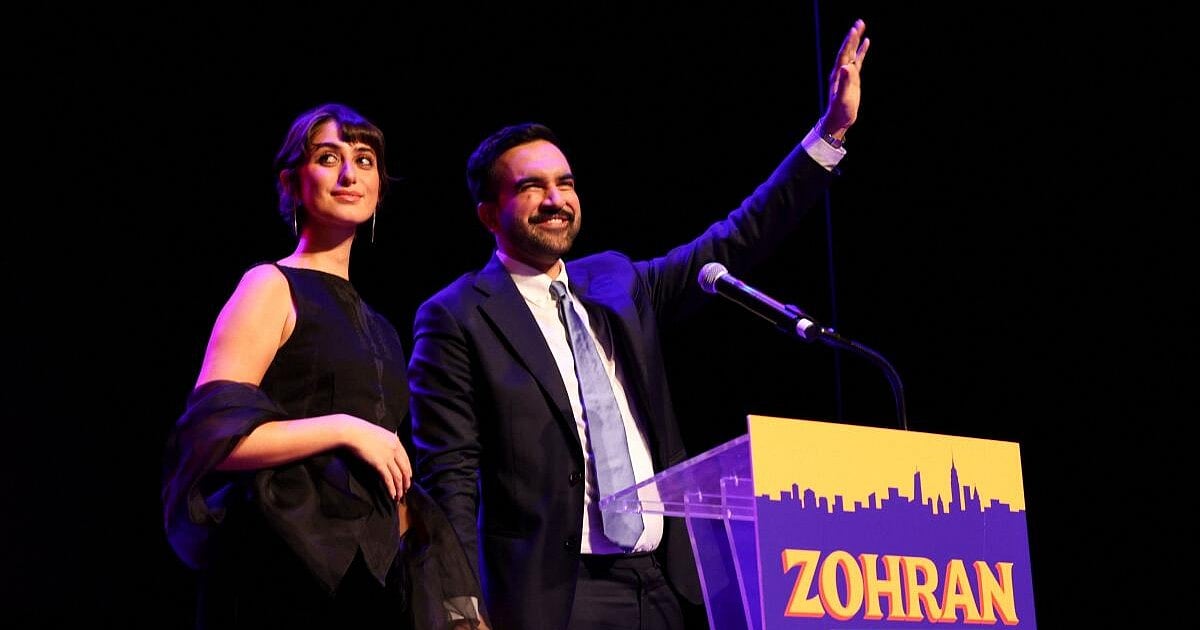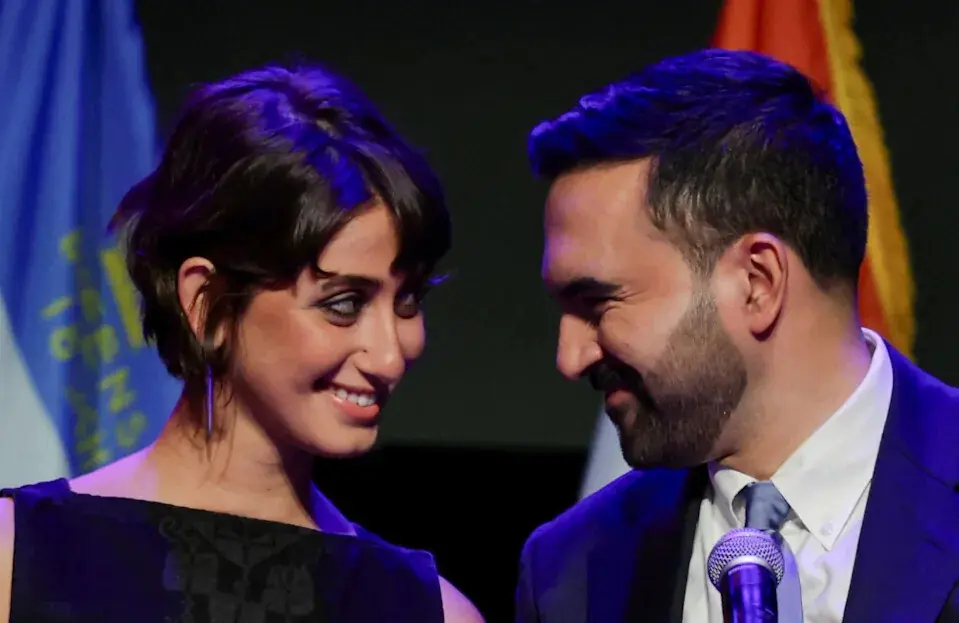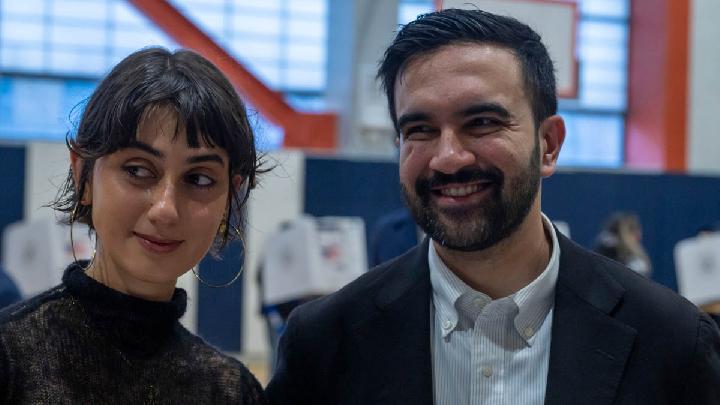When Zoran Mamdani—known to many simply as Zoran Mani—stood beneath the glittering lights of City Hall for his inauguration as New York’s new mayor, the cameras captured his confident smile, the crowd’s thunderous applause, and the promise of a new chapter for America’s greatest city.
But behind every image of power stood a quiet figure whose story has barely been told: his wife, Rama Dwaji, the artist, philanthropist, and woman whose three acts of sacrifice turned her husband’s political victory into a human story of devotion, love, and strength.
1. The First Sacrifice: The Gift That Built a Beginning

Less than twenty-four hours after the election results were certified, preparations for the inauguration began. While staffers debated budgets and sponsorships, Rama made a private decision that few knew about until the day of the ceremony.
She personally donated $2 million to cover the costs of the inauguration—security, staging, and the open-to-public celebration in Central Park. Then, without any fanfare, she contributed another $1 million to public housing and transportation programs
—projects her husband had championed long before he ever held office.
When reporters asked why she gave so much, her response was simple:
“If my husband’s victory means something to the people, it must begin by giving back to the city that gave us everything.”
Those words struck a chord. In a city often divided by wealth, Rama’s gesture was a bridge—a reminder that compassion can still be a form of leadership.
2. The Second Sacrifice: Carrying the Weight of Two Worlds

As Zoran stepped fully into his new duties, the city’s endless meetings, briefings, and crises quickly consumed his days—and nights. He missed dinners. He missed weekends. For most couples, such a pace would build distance. But Rama Dwaji refused to let it.
While her husband worked late, she became the anchor at home—balancing family, public expectations, and the emotional toll of political life. She coordinated schedules, reassured campaign volunteers still adjusting to city hall bureaucracy, and quietly managed their family’s transition into official life.
On social media, she posted notes of encouragement: “New York needs his focus. Our family will always be his foundation.”
That simple statement went viral—not for glamour, but for its sincerity. Older readers, especially women who had spent decades supporting husbands through careers and responsibilities, recognized themselves in her quiet resilience.
“She’s not seeking applause,” one commenter wrote. “She’s doing what strong women have done for generations—holding everything together so someone else can lead.”
In an era when public marriages often crack under pressure, Rama’s calm presence felt almost radical.
3. The Third Sacrifice: The Dream She Let Go

Perhaps the most poignant of her sacrifices was the one no camera caught. Rama Dwaji had spent nearly a year preparing for a
solo art exhibition in Los Angeles—her first major show since leaving teaching to support her husband’s mayoral run.
The exhibit, titled “Echoes of the City,” explored identity, migration, and belonging through abstract sculpture. Art critics had already described it as “promising” and “deeply human.”
Then came the call: the inauguration date had been finalized. It clashed directly with the exhibition’s opening week.
Rama didn’t hesitate. She canceled the show. No complaints. No statements. Only silence—and presence.
When friends later asked how she felt, she reportedly smiled and said:
“There will be other exhibitions. But he’ll only have one first day as mayor. I want to stand beside him for that one.”
It was a line that captured hearts far beyond artistic circles. It wasn’t just about art or politics—it was about choosing love over legacy, a decision as rare as it was powerful.
A Different Kind of First Lady
Since the inauguration, Rama Dwaji has become a quiet symbol of balance in a noisy political landscape. She attends community events, not in designer gowns but in simple, locally made dresses. She visits art schools and senior centers, encouraging creativity and connection.
“She makes politics feel human again,” one elderly volunteer told The New York Post. “You look at her, and you see dignity without distance.”
For many Americans—especially older readers who have lived through decades of changing leadership—her story feels like a return to values that used to define public life: sacrifice, service, humility.
The Power of Grace in an Age of Noise
In the end, Rama Dwaji’s three sacrifices tell a story deeper than politics. They remind us that behind every victory speech, there is someone who gave up something unseen.
Her $3 million in donations may have built stages and programs, but her true contribution lies elsewhere—in the strength she lent her husband, in the steadiness she brought to her family, in the dream she quietly folded away so that another could unfold.
In a world obsessed with headlines and hashtags, she offers something more enduring: grace.
As one columnist put it, “Zoran Mamdani may lead New York, but Rama Dwaji leads the heart that makes such leadership possible.”


